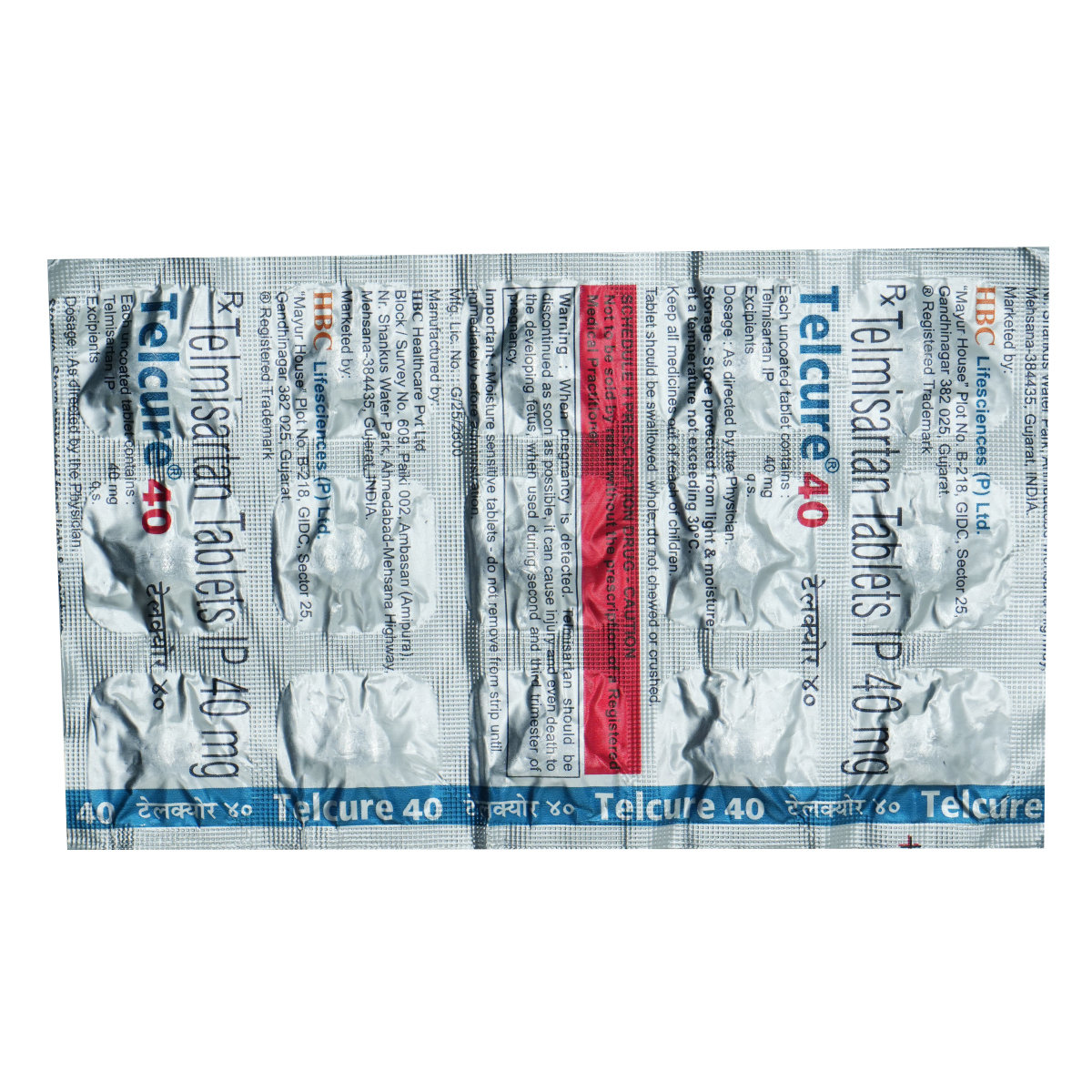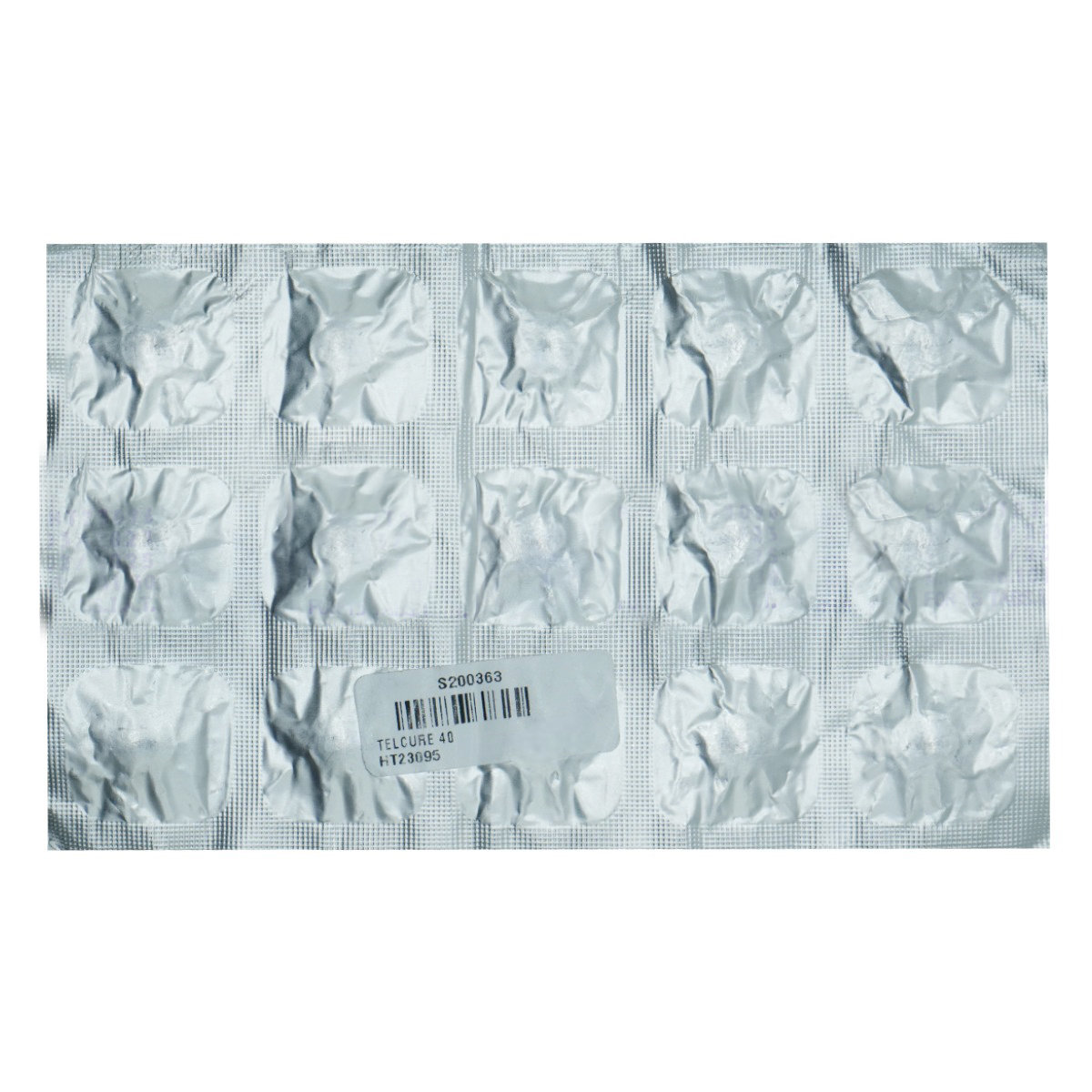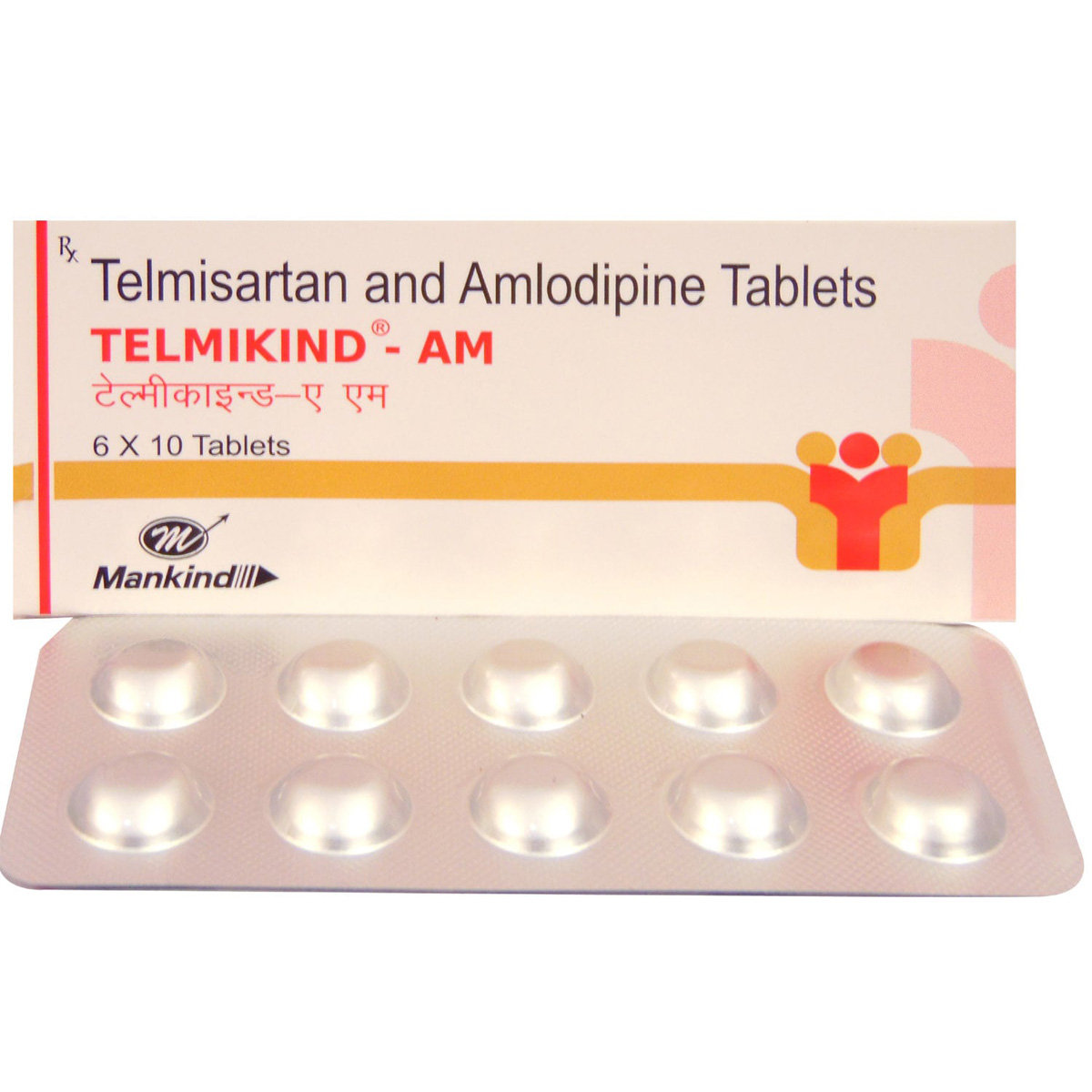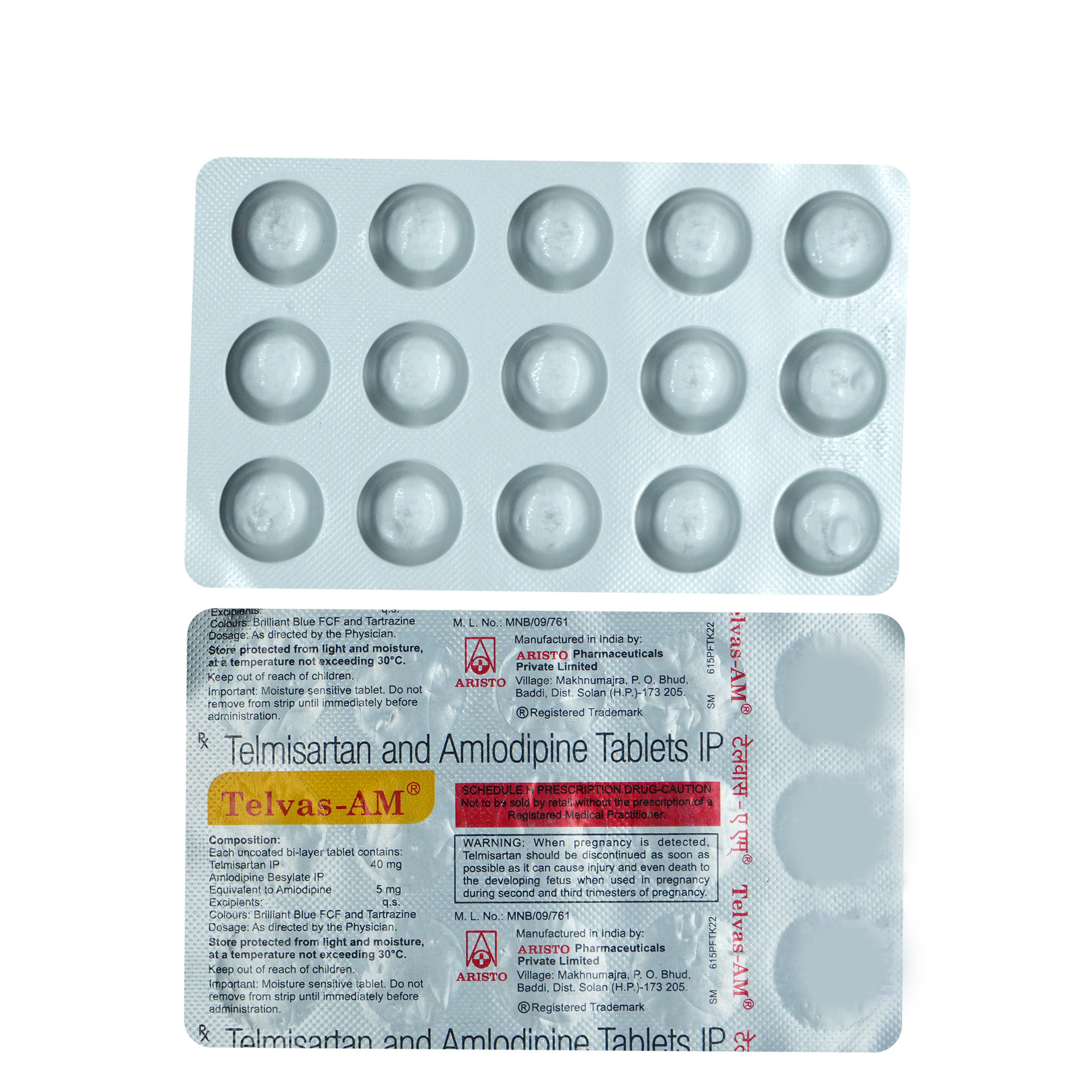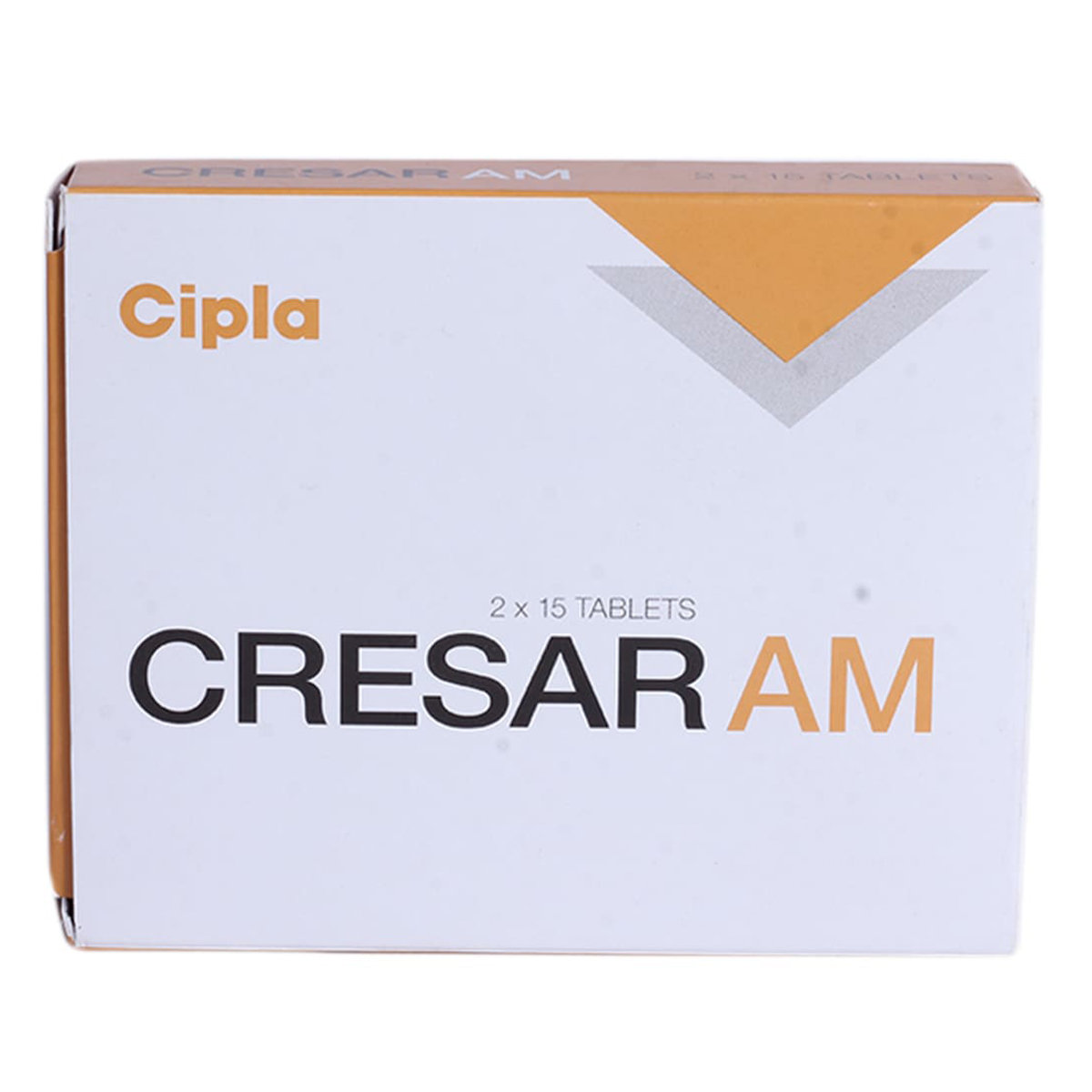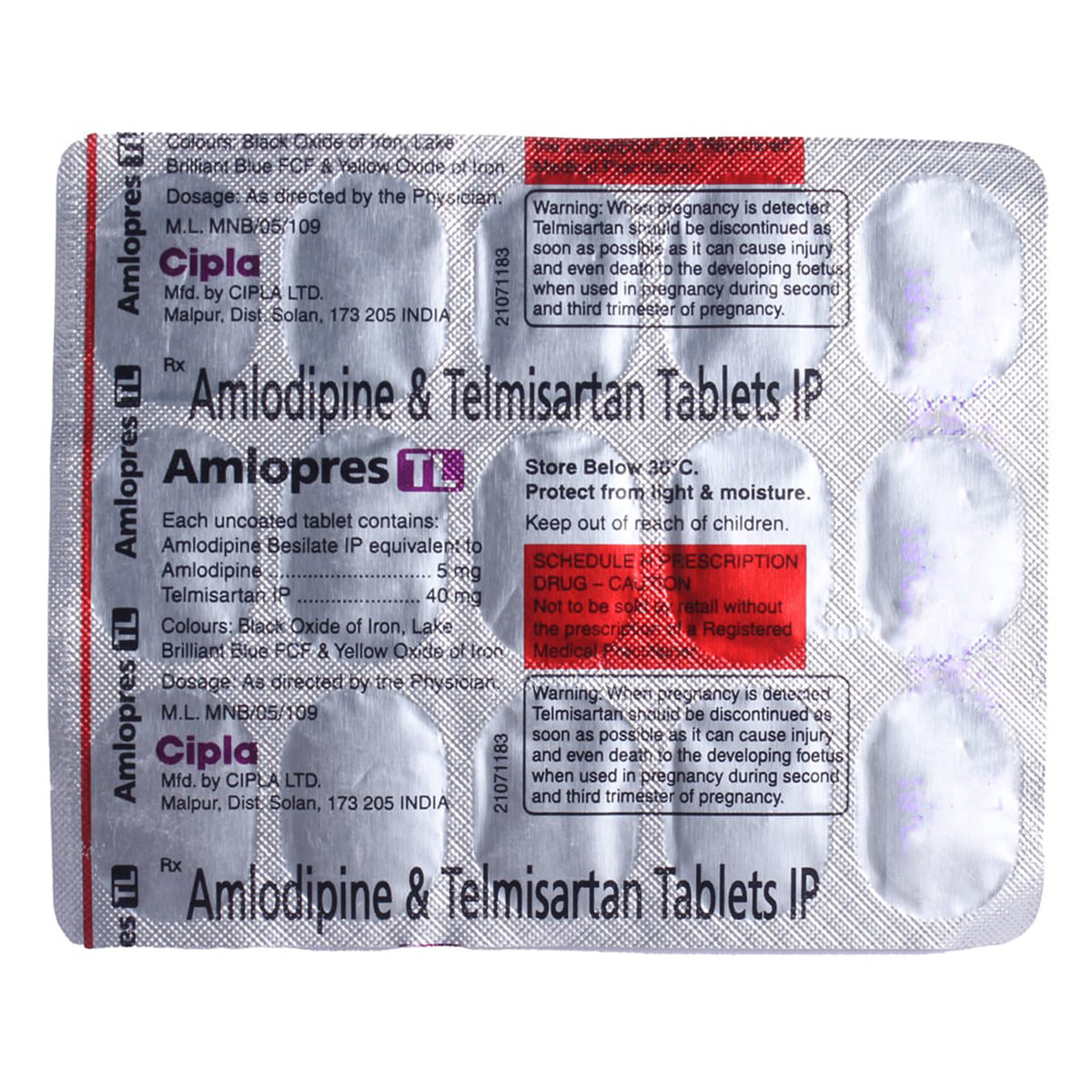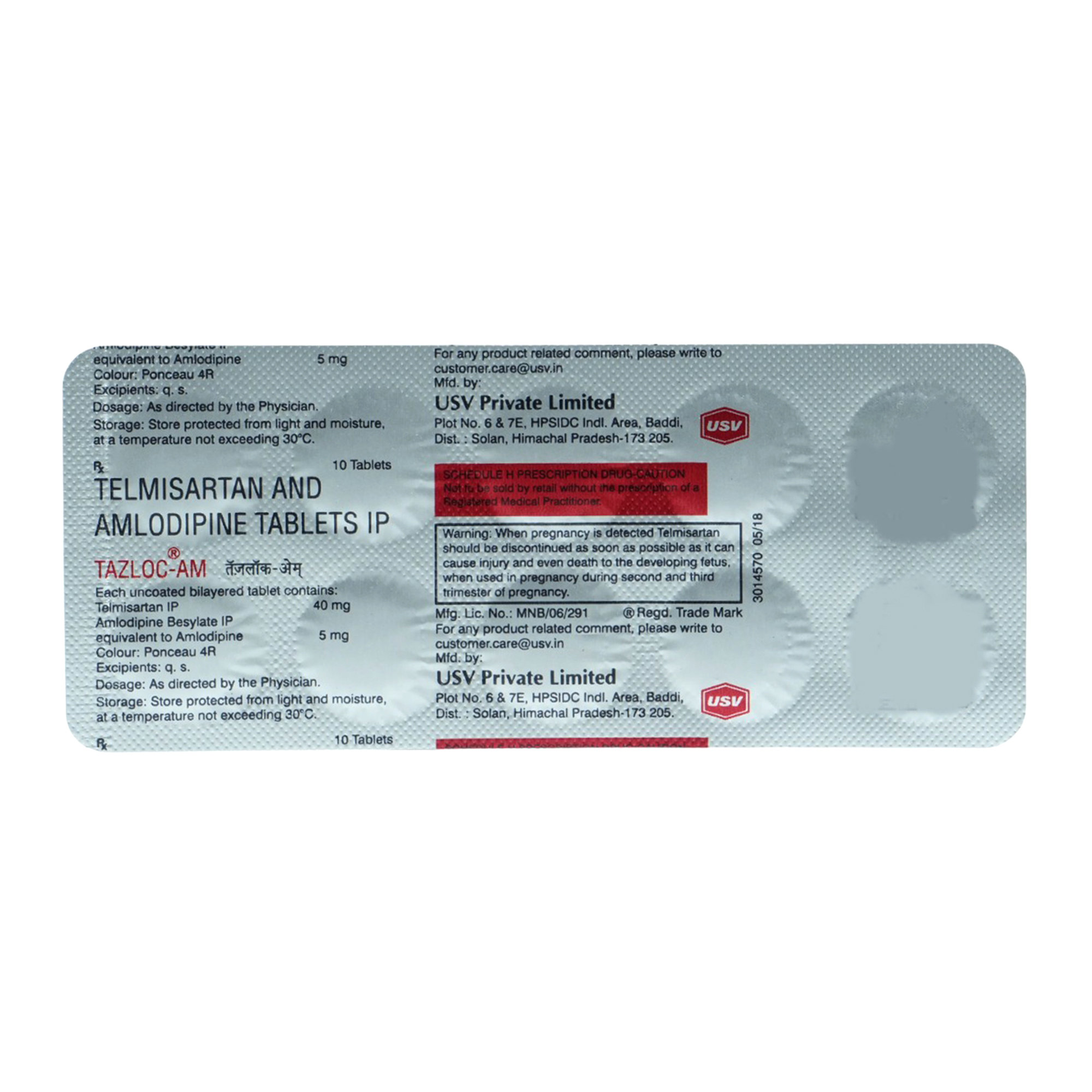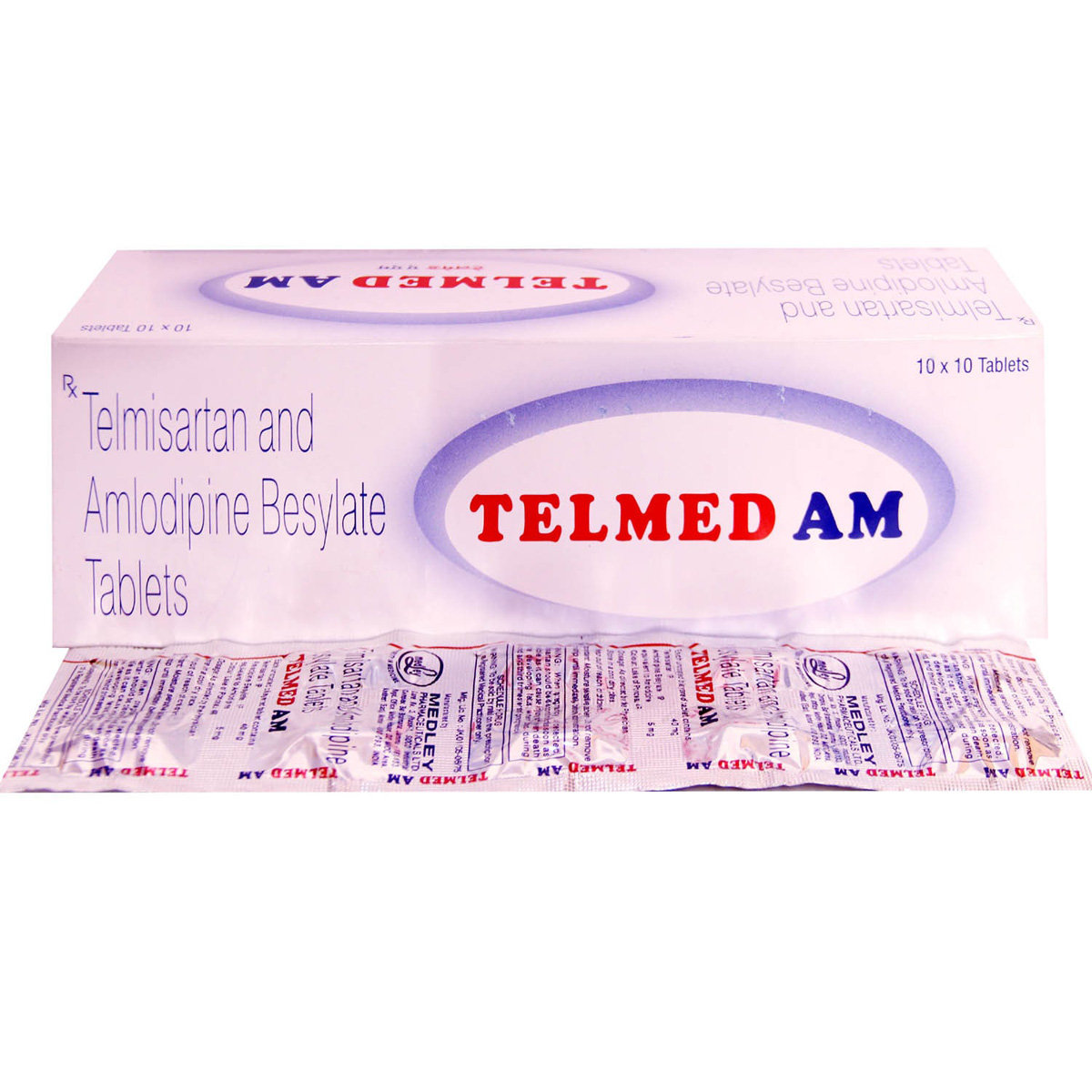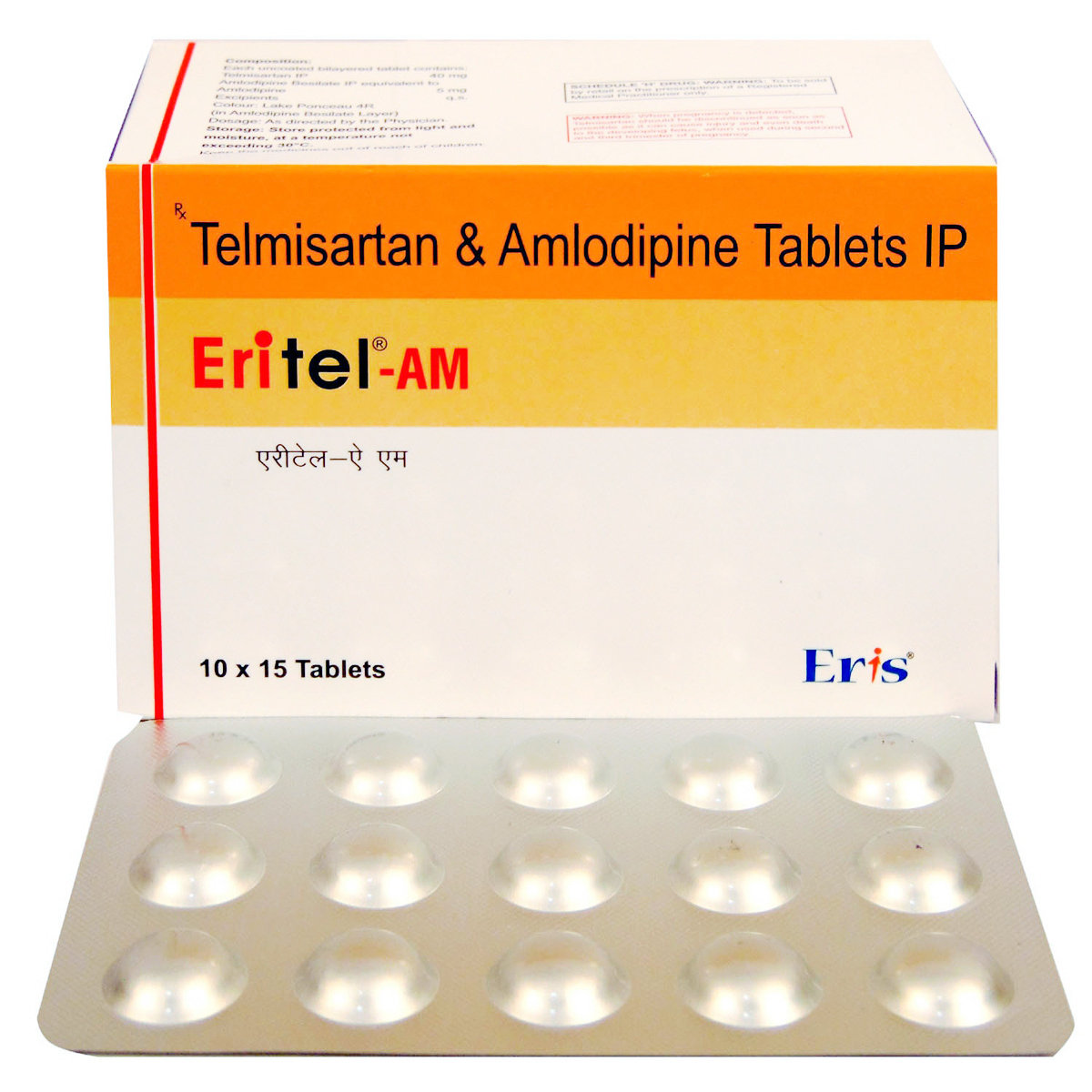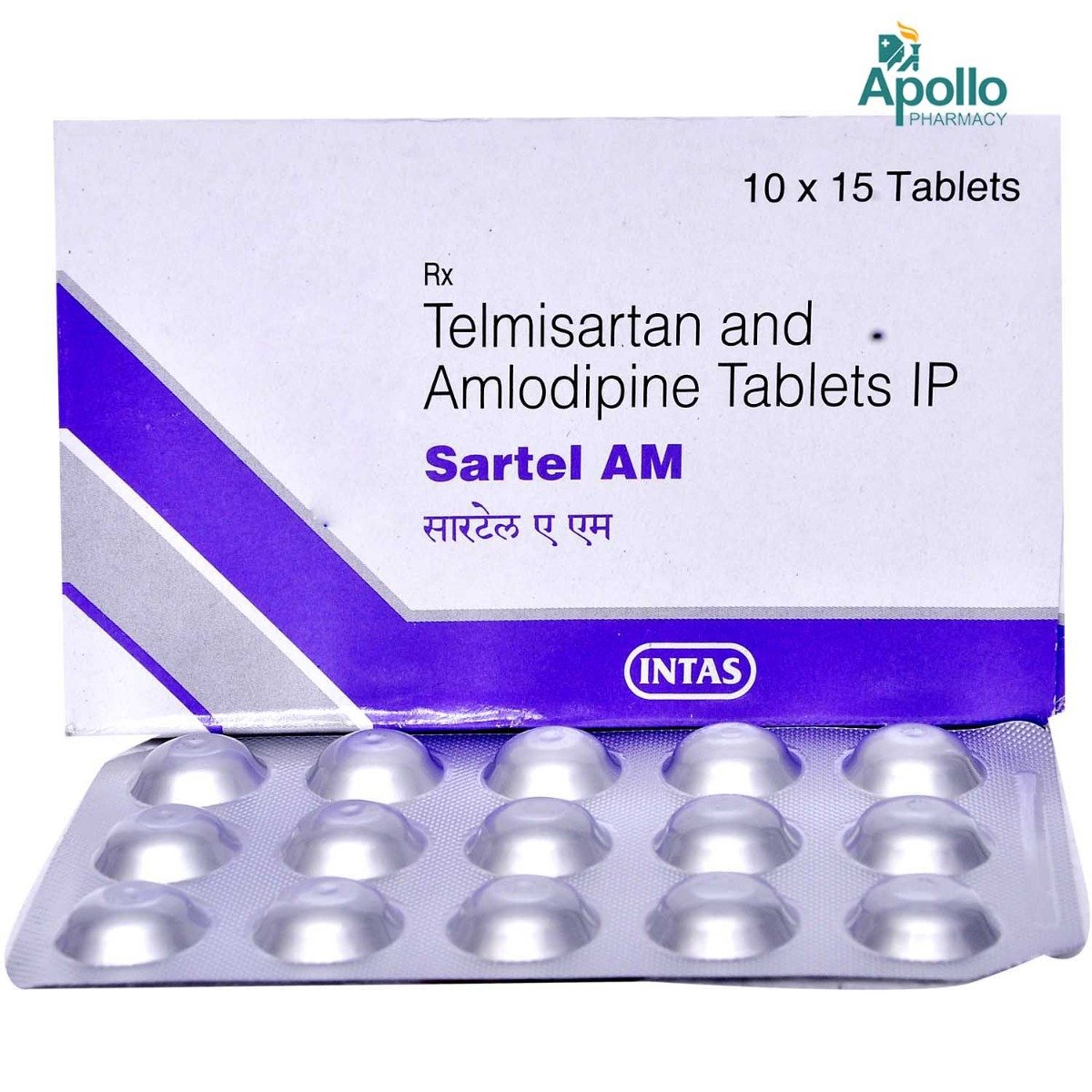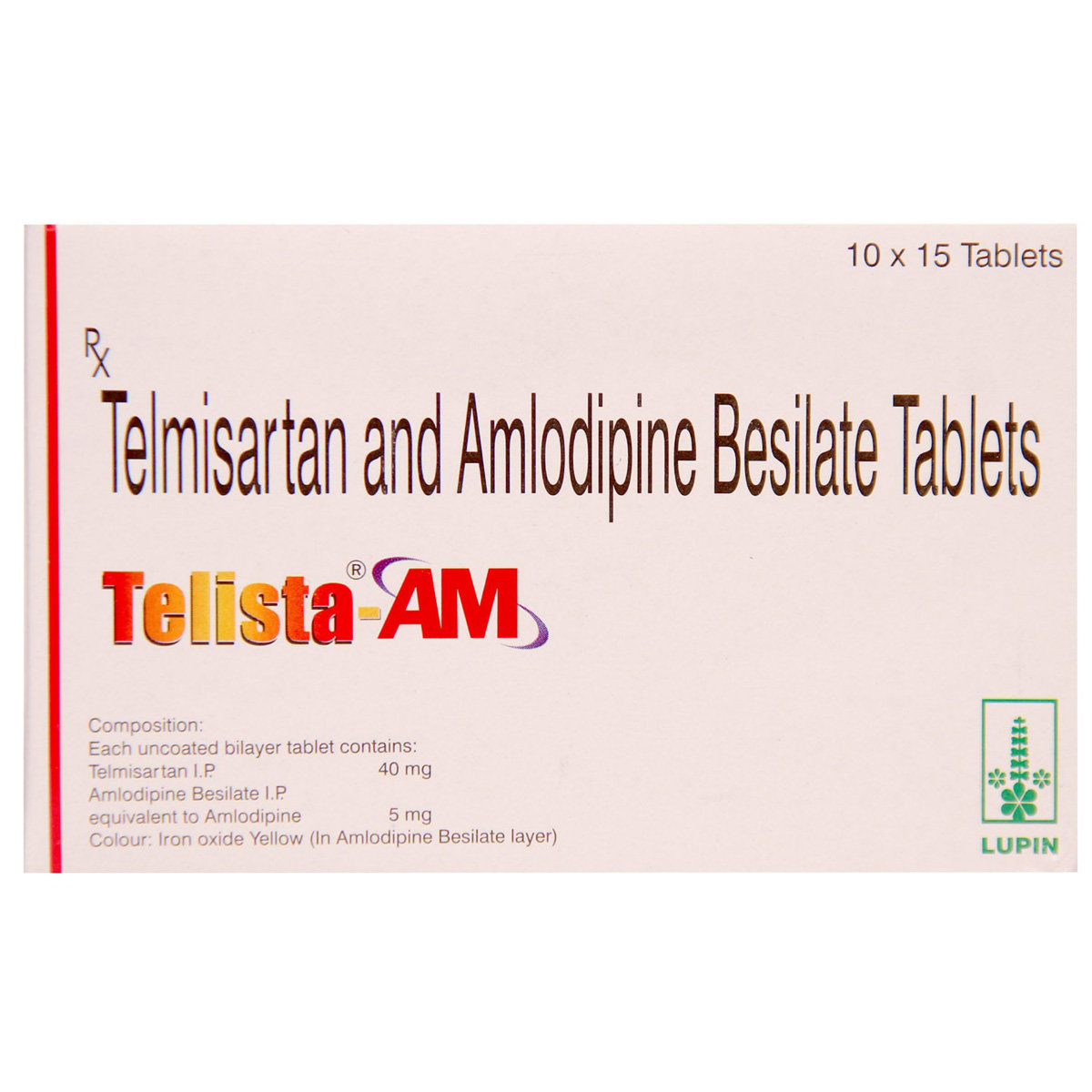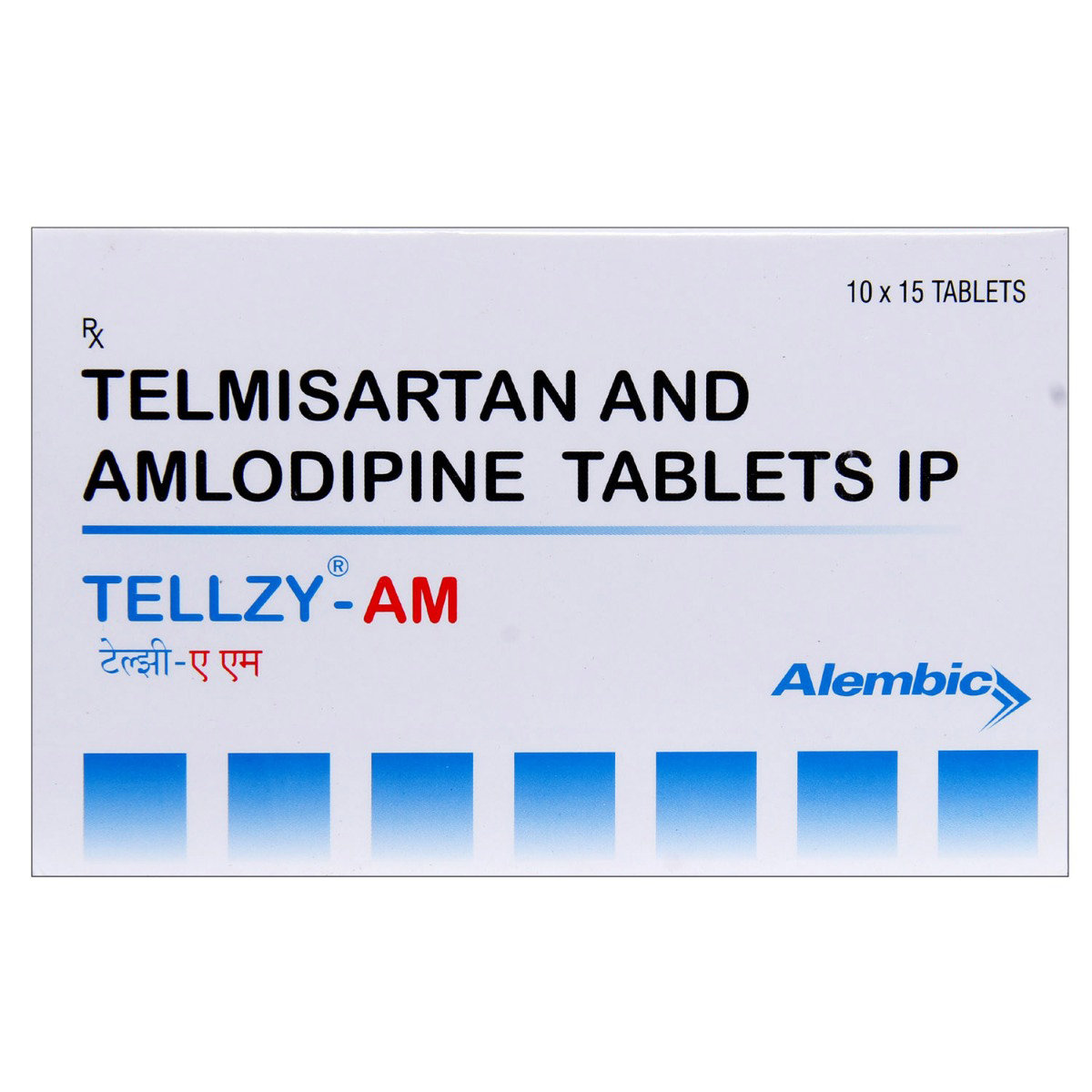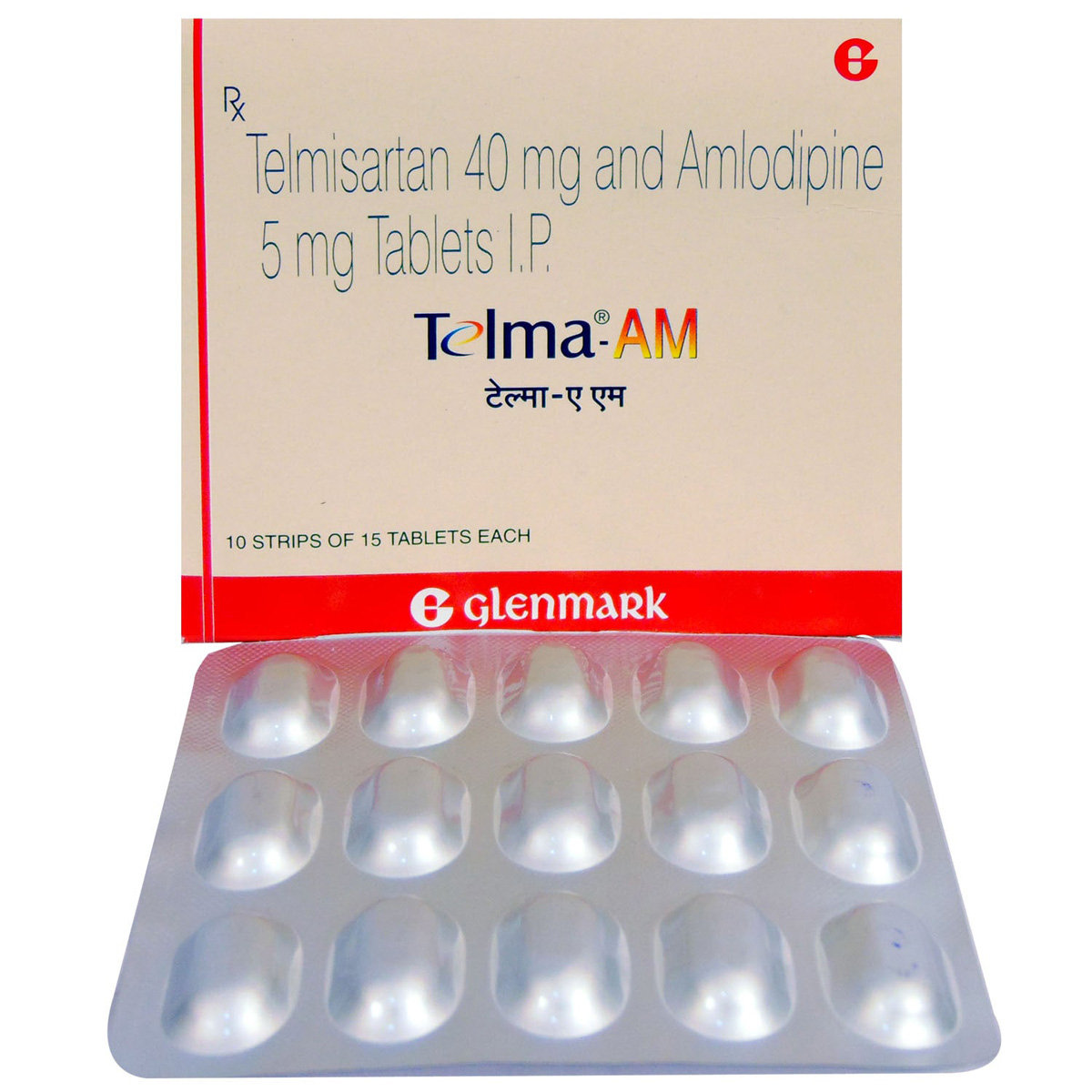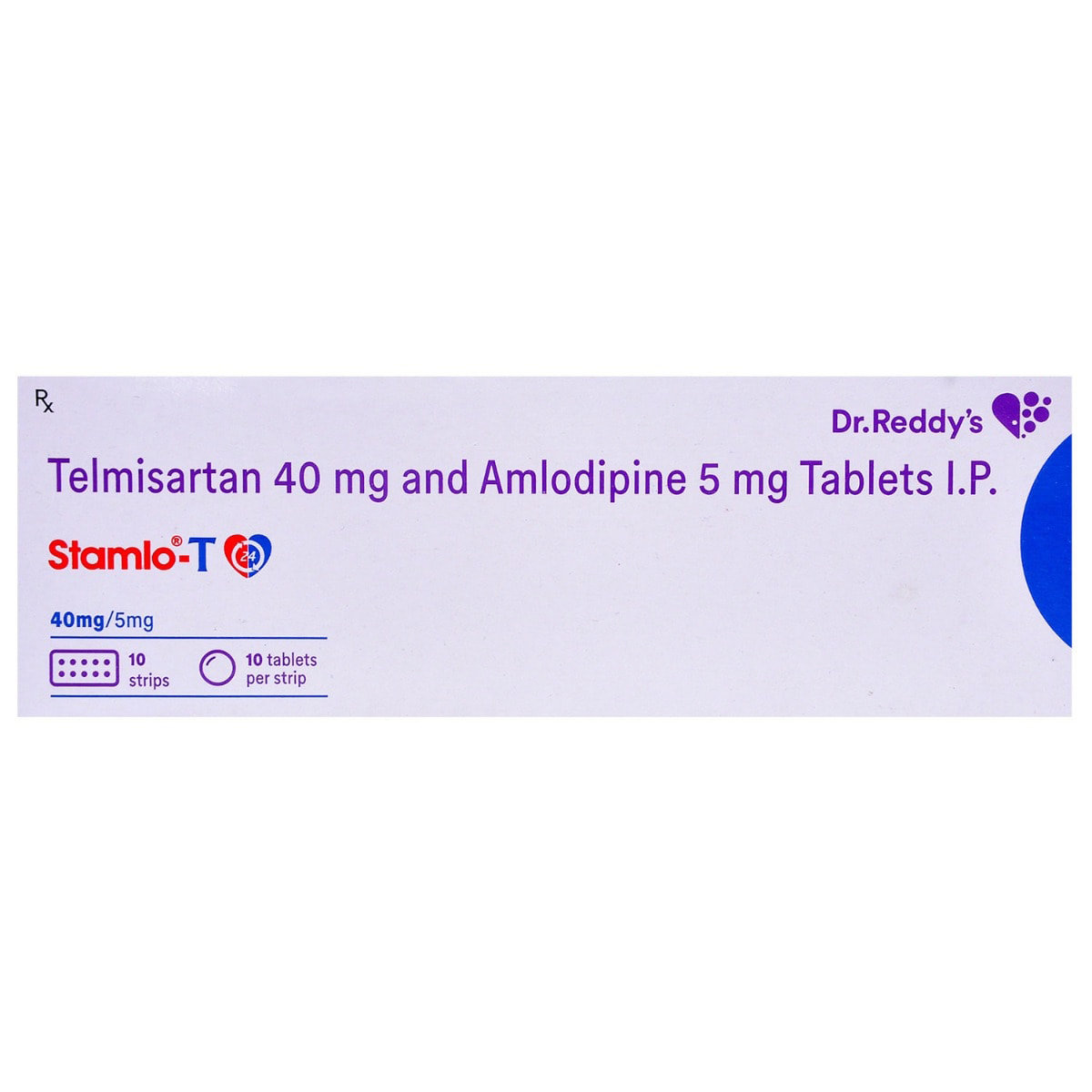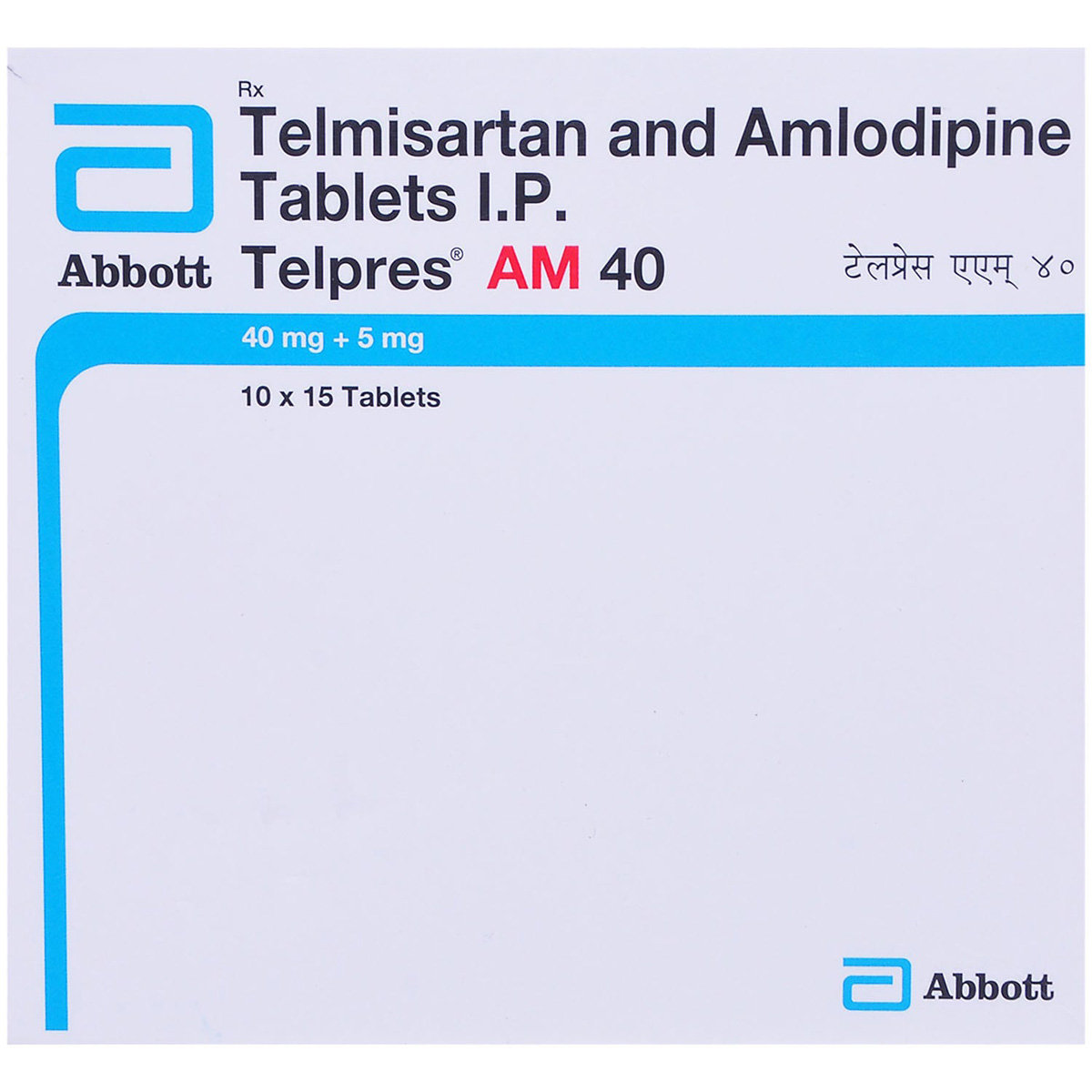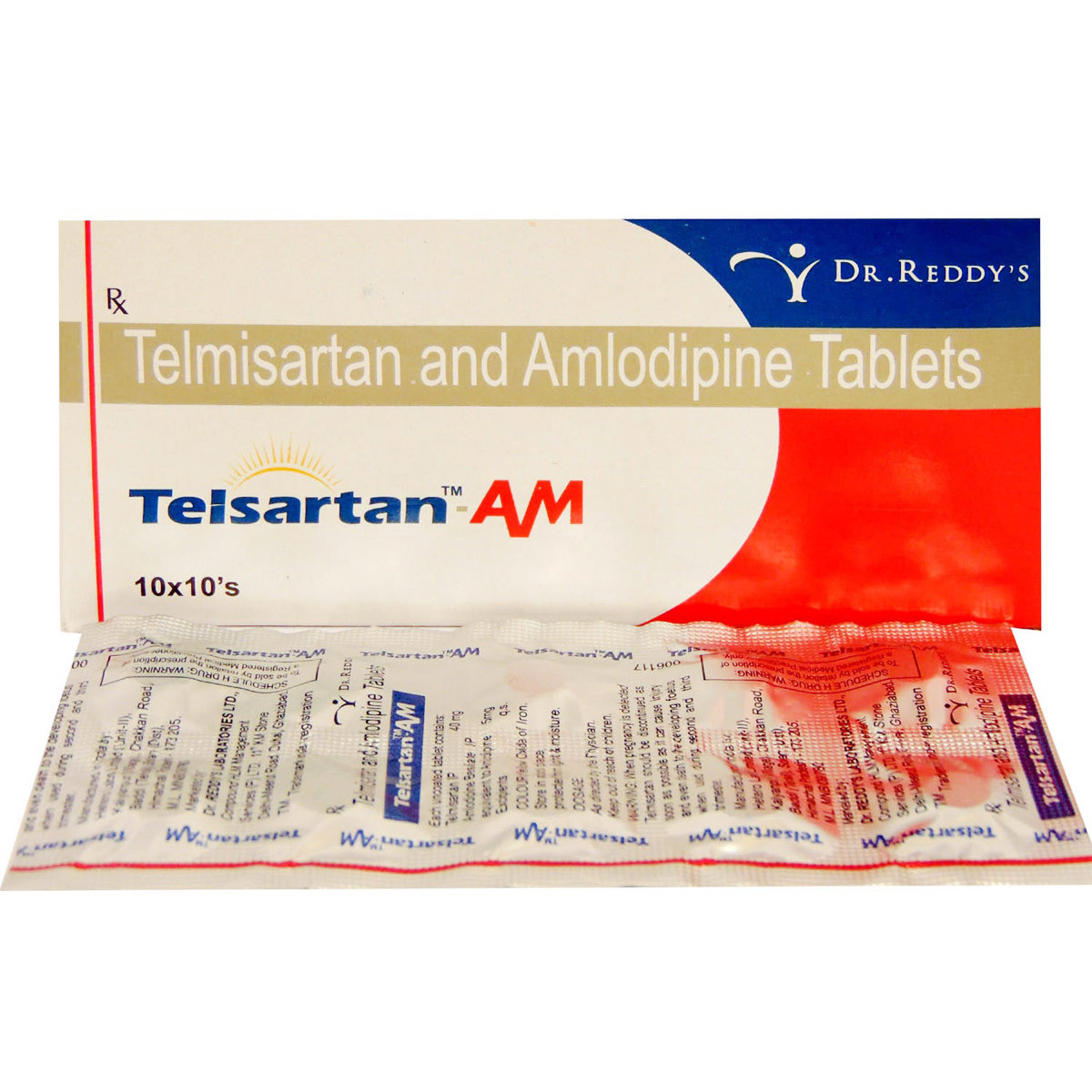Telcure 40 Tablet 15's
MRP ₹94.5
(Inclusive of all Taxes)
₹14.2 Cashback (15%)
Selected Pack Size:15
15 ₹85.1
(₹5.67 per unit)
In Stock
10 ₹57.6
(₹5.76 per unit)
In Stock
Provide Delivery Location
Online payment accepted
 Prescription drug
Prescription drugWhats That
Composition :
Manufacturer/Marketer :
Consume Type :
Expires on or after :
Return Policy :
NPPA :
About Telcure 40 Tablet
Telcure 40 Tablet belongs to the class of anti-hypertensive drugs, primarily used to treat high blood pressure (hypertension). Hypertension is a medical condition in which blood pressure is elevated persistently in the arteries. It is considered an essential risk factor for cardiovascular diseases. Telcure 40 Tablet lowers the blood pressure by widening and relaxing blood vessels.
Telcure 40 Tablet is a fixed-dose combination composed of two medicines, namely, Telmisartan and Amlodipine. Telmisartan belongs to a group of drugs called angiotensin II receptor antagonists. It lowers blood pressure and increases blood flow by preventing the narrowing of blood vessels. It is used to lower the chances of stroke, heart attack, and death. Amlodipine is a calcium channel blocker that dilates (widens) blood vessels and increases blood flow. Altogether, it helps to lower high blood pressure, chest pain (angina), and other conditions caused by coronary artery disease.
Telcure 40 Tablet is available in the form of oral tablets. Swallow it as a whole with a glass of water. You can take Telcure 40 Tablet with or without food once a time in a day, as prescribed by the doctor. Do not crush, chew, or break it. Your doctor will decide the dosage based on your medical condition. In some cases, Telcure 40 Tablet can cause side effects primarily peripheral oedema (swelling in legs and arms), a common cold, backache, diarrhoea, dizziness, drowsiness, confusion, rashes, and weakness. Most of these side effects of Telcure 40 Tablet do not require medical attention and gradually resolve over time. However, if these side effects persist longer, please consult your doctor.
If you are known to be allergic to Telcure 40 Tablet or any other medicines, please inform your doctor. Before taking Telcure 40 Tablet , let your doctor know if you have hypersensitivity like anaphylaxis (an allergic reaction which includes rashes, low pulse, and shock) or angioedema (swelling under the skin mostly swelling occurs in the face, tongue, abdomen, legs and arms). Pregnant or breastfeeding women should discontinue this Telcure 40 Tablet because it can cause injury and death to the developing fetus. Please do not stop taking Telcure 40 Tablet on your own, as it may lead to the recurrence of symptoms or worsen the condition. Do not consume alcohol with Telcure 40 Tablet as it may increase the risk of low blood pressure. Avoid potassium supplements with Telcure 40 Tablet as it may lead to high potassium levels in the blood.
Uses of Telcure 40 Tablet
Directions for Use
Key Benefits
Telcure 40 Tablet is an anti-hypertensive drug that treats high blood pressure (hypertension). Telcure 40 Tablet lowers blood pressure by widening and relaxing blood vessels. Telcure 40 Tablet consists of two medicines, namely: Telmisartan and Amlodipine. Telmisartan belongs to a group of drugs called angiotensin II receptor antagonists. It lowers blood pressure and increases blood flow by preventing the narrowing of blood vessels. It reduces the chances of stroke, heart attack, and death. Amlodipine is a calcium channel blocker that dilates (widens) blood vessels and increases blood flow. Altogether, it helps to lower high blood pressure, chest pain (angina), and other conditions caused by coronary artery disease.
Storage
- Inform Your Doctor: Notify your doctor immediately about your diarrhoea symptoms. This allows them to adjust your medication or provide guidance on managing side effects.
- Stay Hydrated: Drink plenty of fluids to replace lost water and electrolytes. Choose water, clear broth, and electrolyte-rich drinks. Avoid carbonated or caffeinated beverages to effectively rehydrate your body.
- Follow a Bland Diet: Eat easy-to-digest foods to help firm up your stool and settle your stomach. Try incorporating bananas, rice, applesauce, toast, plain crackers, and boiled vegetables into your diet.
- Avoid Trigger Foods: Steer clear of foods that can worsen diarrhoea, such as spicy, fatty, or greasy foods, high-fibre foods, and dairy products (especially if you're lactose intolerant).
- Practice Good Hygiene: Maintain good hygiene to prevent the spread of infection. To stay healthy, wash your hands frequently, clean and disinfect surfaces regularly, and avoid exchanging personal belongings with others.
- Take Anti-Diarrheal Medications: If your doctor advises, anti-diarrheal medications such as loperamide might help manage diarrhoea symptoms. Always follow your doctor's directions.
- Keep track of your diarrhoea symptoms. If they don't get better or worse or are accompanied by severe stomach pain, blood, or dehydration signs (like extreme thirst or dark urine), seek medical help.
- Inform your doctor about the nausea and discuss possible alternatives to the medication or adjustments to the dosage.
- Divide your daily food intake into smaller, more frequent meals to reduce nausea.
- Opt for bland, easily digestible foods like crackers, toast, plain rice, bananas, and applesauce.
- Avoid certain foods that can trigger nausea, such as fatty, greasy, spicy, and smelly foods.
- Drink plenty of fluids, such as water, clear broth, or electrolyte-rich beverages like coconut water or sports drinks.
- Use ginger (tea, ale, or candies) to help relieve nausea.
- Get adequate rest and also avoid strenuous activities that can worsen nausea.
- Talk to your doctor about taking anti-nausea medication if your nausea is severe.
- Record when your nausea occurs, what triggers it, and what provides relief to help you identify patterns and manage your symptoms more effectively.
- If you experience low blood pressure symptoms like dizziness, lightheadedness, or fainting while taking medication, seek immediate medical attention.
- Make lifestyle modifications and adjust your medication regimen under medical guidance to manage low blood pressure.
- As your doctor advises, regularly check your blood pressure at home. Record your readings to detect any changes and share them with your doctor.
- Fluid intake plays a vital role in managing blood pressure by maintaining blood volume, regulating blood pressure, and supporting blood vessel function. Drinking enough fluids helps prevent dehydration, maintain electrolyte balance, and regulate fluid balance.
- Take regular breaks to sit or lie down if you need to stand for long periods.
- When lying down, elevate your head with extra pillows to help improve blood flow.
- Avoid heavy exercise or strenuous activities that can worsen low blood pressure.
- Wear compression socks as your doctor advises to enhance blood flow, reduce oedema, and control blood pressure.
- If symptoms persist or worsen, or if you have concerns about your condition, seek medical attention for personalized guidance and care.
- Avoid triggers like alcohol, caffeine, and energy drinks.
- Try relaxation techniques such as yoga, meditation, or deep breathing.
- Exercise regularly as it helps maintain heart health.
- Follow a nutritious and balanced diet.
- Consult your doctor if you experience symptoms of sinusitis, such as nasal congestion, facial pain, or headaches, which may be triggered by your medication.
- Your doctor may adjust your treatment plan by changing your medication, adding new medications, or providing guidance on managing your sinusitis symptoms.
- Practice good hygiene, including frequent handwashing, avoiding close contact with others, and avoiding sharing utensils or personal items.
- If your doctor advises, you can use nasal decongestants or saline nasal sprays to help relieve nasal congestion and sinus pressure.
- To help your body recover, get plenty of rest, stay hydrated, and engage in stress-reducing activities. If your symptoms persist or worsen, consult your doctor for further guidance.
- Drink warm fluids such as warm water with honey, broth, soup or herbal tea to soothe sore throat.
- Gargle with warm salt water.
- Suck on lozenges to increase the production of saliva and soothe your throat.
- Use a humidifier to soothe sore throat as it adds moisture to the air and makes breathing easier.
- If you experience symptoms like coughing, wheezing, chest tightness, or difficulty breathing after taking medication, seek medical attention immediately.
- Your healthcare provider will work with you to stop the medication causing the reaction, start alternative treatments, and provide supportive therapy.
- To manage symptoms and prevent complications, follow your doctor's advice to use inhalers or nebulizers as prescribed, practice good hygiene, avoid irritants, stay hydrated, and get plenty of rest.
- Regularly track your symptoms and report any changes or concerns to your healthcare provider.
Drug Warnings
Monitor your blood pressure levels regularly. If you are known to be allergic to Telcure 40 Tablet or have any kidney or liver problems or severe dehydration, please inform your doctor beforehand. Pregnant or breastfeeding women should also consult their doctor before taking it. It is advised to complete the prescribed course, even if you feel better. Complete the course strictly as suggested by the doctor, even if you feel better, to avoid disease recurrence. Avoid consumption of alcohol with Telcure 40 Tablet as it may increase the risk of low blood pressure. Avoid potassium supplements with Telcure 40 Tablet as they may lead to high potassium levels in the blood.
Drug-Drug Interactions
Drug-Drug Interactions
Login/Sign Up
Co-administration of Aliskiren with Telcure 40 Tablet can increase the risk of hyperkalemia (high potassium levels in the blood).
How to manage the interaction:
Taking Telcure 40 Tablet with Aliskiren can possibly lead to an interaction, please consult a doctor before taking it. Do not discontinue the medications without consulting a doctor.
Taking spironolactone with Telcure 40 Tablet may increase potassium levels in the blood.
How to manage the interaction:
Although there is a possible interaction, Telcure 40 Tablet can be taken with spironolactone if prescribed by the doctor. Consult the prescriber if you experience symptoms of high potassium such as nausea, vomiting, weakness, confusion, tingling of the hands and feet, feelings of heaviness in the legs, a weak pulse, or a slow or irregular heartbeat. Maintain adequate fluid intake during treatment with these medications. Do not discontinue the medications without consulting a doctor.
Co-administration of Telcure 40 Tablet increases levels of eluxadoline by increasing metabolism.
How to manage the interaction:
Taking Telcure 40 Tablet with Eluxadoline together can possibly result in an interaction, but it can be taken if your doctor has advised it. Do not discontinue any medications without consulting a doctor.
Taking Telcure 40 Tablet with benazepril may increase the risk of side effects such as low blood pressure, kidney function impairment, and high blood potassium.
How to manage the interaction:
Although there is a possible interaction, Telcure 40 Tablet can be taken with benazepril if prescribed by the doctor. Consult the prescriber if you experience symptoms of high potassium such as nausea, vomiting, weakness, confusion, tingling of the hands and feet, feelings of heaviness in the legs, a weak pulse, or a slow or irregular heartbeat. Maintain adequate fluid intake during treatment with these medications. Do not discontinue the medication without consulting a doctor.
Taking lisinopril with Telcure 40 Tablet may increase the levels of potassium in blood.
How to manage the interaction:
Although there is a possible interaction, Telcure 40 Tablet can be taken with lisinopril if prescribed by the doctor. Consult the prescriber if you experience symptoms of high potassium such as nausea, vomiting, weakness, confusion, tingling of the hands and feet, feelings of heaviness in the legs, a weak pulse, or a slow or irregular heartbeat. Maintain adequate fluid intake during treatment with these medications.
Taking Potassium Iodide with Telcure 40 Tablet can make high levels of potassium in the blood more likely.
How to manage the interaction:
Although taking Potassium iodide and Telcure 40 Tablet together can evidently cause an interaction, it can be taken if your doctor has suggested it. Do not stop using any medications without a doctor's advice.
Taking trimethoprim with Telcure 40 Tablet may increase potassium levels in the blood.
How to manage the interaction:
Although there is an interaction between Telcure 40 Tablet and trimethoprim, they can be taken together if prescribed by a doctor. However, consult a doctor if you experience nausea, vomiting, weakness, confusion, tingling of the hands and feet, feelings of heaviness in the legs, and a weak pulse. Do not discontinue the medications without consulting a doctor.
Co-administration of Potassium acetate can make Telcure 40 Tablet more likely to cause high levels of potassium in the blood.
How to manage the interaction:
Although taking Potassium acetate and Telcure 40 Tablet together can evidently cause an interaction, it can be taken if your doctor has suggested it. Do not stop using any medications without a doctor's advice.
Co-administration of Telcure 40 Tablet may significantly increase the blood levels of lithium.
How to manage the interaction:
Although there is a possible interaction, Telcure 40 Tablet can be taken with lithium if prescribed by the doctor. Consult the prescriber if you experience symptoms of lithium intoxication such as drowsiness, dizziness, confusion, loose stools, vomiting, muscle weakness, muscle incoordination, shaking of hands and legs, blurred vision, ringing in the ear, excessive thirst, or increased urination. Do not discontinue the medication without consulting a doctor.
Taking tizanidine with Telcure 40 Tablet may have additive effects in lowering the blood pressure.
How to manage the interaction:
Although there is a possible interaction, Telcure 40 Tablet can be taken with tizanidine if prescribed by your doctor. Consult the prescriber if you experience symptoms of low blood pressure, such as headache, dizziness, lightheadedness, fainting, and/or changes in pulse or heart rate. Be cautious when getting up from a sitting or lying position. Do not discontinue the medications without consulting a doctor.
Drug-Food Interactions
Drug-Food Interactions
Login/Sign Up
Diet & Lifestyle Advise
- Create a well-balanced and healthy diet that includes vegetables, fruits, whole grains, legumes, omega-3-rich foods, and lean protein sources.
- Keep your weight under control with a BMI of 19.5-24.9.
- Avoid chronic stress, as it can raise your blood pressure.
- Spend time with your loved ones to cope with stress and practice mindfulness techniques.
- Be mindful of salt; consume no more than 2,300 mg each day.
- Limit or avoid alcohol consumption.
- Quitting smoking is the best strategy to lower the risk of heart disease.
Side Effects of Telcure 40 Tablet
- Peripheral oedema (swelling in legs and arms)
- Common cold
- Backache
- Diarrhoea
- Dizziness
- Drowsiness
- Confusion
- Rashes
- Weakness
Habit Forming
Therapeutic Class
All Substitutes & Brand Comparisons
RX
Telmikind-AM Tablet 10's
Mankind Pharma Pvt Ltd
₹78
(₹7.02 per unit)
23% COSTLIERRX
Telvas-AM Tablet 15's
Aristo Pharmaceuticals Pvt Ltd
₹135.5
(₹8.13 per unit)
43% COSTLIERRX
Cresar AM Tablet 15's
Cipla Ltd
₹138
(₹8.28 per unit)
46% COSTLIER
Drug-Diseases Interactions
Drug-Diseases Interactions
Login/Sign Up
In people with diabetes, it is not recommended to combine certain angiotensin II receptor blockers with aliskiren.
How to manage the interaction:
Angiotensin II receptor blocker agents are contraindicated in patients with diabetes.
Patients having a history of angioedema brought on by prior treatment with an ACE inhibitor or an angiotensin II receptor blocker (ARB), as well as those with hereditary angioedema, should not use these medications.
How to manage the interaction:
The use of these agents is contraindicated in patients with a history of angioedema. Consult the doctor immediately if you notice symptoms of angioedema like swelling of face, extremities, eyes, lips, or tongue, or difficulty swallowing or breathing.
Patients with an active renin-angiotensin system, such as those who are volume- and/or sodium-depleted patients, are susceptible to symptoms of hypotension brought on by angiotensin II receptor (AR) antagonists. Patients with these conditions, as well as those who are susceptible to hypovolemic or hyponatremic situations, should receive therapy with AR antagonists with caution.
How to manage the interaction:
Therapy should be administered cautiously in such patients on diuretic therapy, especially if high doses were used or if recently instituted; those on dietary salt restriction; renal dialysis patients.
FAQs
Telcure 40 Tablet is a combination of two medicines: Telmisartan and Amlodipine. Telmisartan is an angiotensin receptor blocker (ARB), and Amlodipine is a calcium channel blocker (CCB). They work by relaxing the blood vessels and making the heart more efficient at pumping blood throughout the body. Together, they lower blood pressure effectively.
No, because your blood pressure rapidly increases when you suddenly stop this Telcure 40 Tablet . This can increase your risk of heart attack and stroke.
Pregnant women should discontinue this Telcure 40 Tablet because it can cause injury and death to the developing fetus. So, Telcure 40 Tablet is not safe in pregnancy.
There is no evidence on how Telcure 40 Tablet affects breastfeeding. Please consult your doctor before taking Telcure 40 Tablet if you are breastfeeding.
Do not stop using Telcure 40 Tablet even if you feel better. It should be strictly used as advised by your doctor to avoid the recurrence of symptoms and worsening of the disease.
No, Telcure 40 Tablet can cause high levels of potassium in the blood leading to hyperkalemia. Hence it is not recommended to use potassium supplements along with Telcure 40 Tablet . However, consult your doctor if you are already taking other medicines before starting Telcure 40 Tablet .
Yes, the Telcure 40 Tablet can make you feel dizzy. Dizziness usually occurs when you suddenly stand up from a lying or sitting position. Try rising slowly when you change your posture to relieve dizziness. If the side effect persists longer, please seek medical help.
Telcure 40 Tablet is generally safe to take for a long time. Remember to follow your doctor's advice/instructions.
Drug-Drug Interactions Checker List
- ALISKIREN
- RAMIPRIL
- IBUPROFEN
- NAPROXEN
- SIMVASTATIN
- DIGOXIN
- LITHIUM
- CYCLOSPORINE
- TACROLIMUS
Special Advise
- Keep a check on your daily blood pressure, and if you notice any fluctuations, please consult a doctor. A low salt/sodium diet and regular exercise are recommended along with Telcure 40 Tablet for effective results.
Disease/Condition Glossary
Hypertension: The blood exerts increased pressure on the walls of blood vessels leading to hypertension. High blood pressure is expressed as systolic/diastolic pressure. Systolic pressure is the pressure in the arteries when the heart beats or pumps out blood. Diastolic pressure is the pressure in the arteries between the heartbeats. Blood pressure is measured in millimetres of mercury (mmHg) by a blood pressure monitor called a sphygmomanometer. Some of the symptoms are headache, dizziness, nosebleeds, altered vision, chest pain, weakness, and shortness of breath. However, most of the time, the signs and symptoms of hypertension are none.

Have a query?
Alcohol
Safe if prescribed
It is unsafe to consume alcohol since alcohol consumption with Telcure 40 Tablet may increase the risk of low blood pressure and cause adverse effects such as dizziness, fainting, light-headedness, or headache.
Pregnancy
Consult your doctor
Pregnant women should discontinue this Telcure 40 Tablet because it can cause injury and death to the developing fetus. So, Telcure 40 Tablet is not safe in pregnancy.
Breast Feeding
Consult your doctor
There is no evidence on how Telcure 40 Tablet affects breastfeeding. So, inform your doctor if you are a nursing mother. Your doctor will weigh the benefits and potential risks before prescribing Telcure 40 Tablet .
Driving
Safe if prescribed
Telcure 40 Tablet may cause side effects like dizziness, headaches, and nausea, which can affect your ability to concentrate and drive. Hence, it is recommended not to drive until you are mentally alert.
Liver
Consult your doctor
Inform your doctor before receiving the Telcure 40 Tablet if you have a history of liver diseases/conditions. Your doctor may adjust your dose depending on your current liver conditions.
Kidney
Consult your doctor
Inform your doctor before receiving the Telcure 40 Tablet if you have a history of kidney diseases/conditions. Your doctor may adjust your dose depending on your current kidney conditions.
Children
Safe if prescribed
Telcure 40 Tablet is not recommended to use in children. Please consult the doctor if you have any concerns regarding this.
Recommended for a 30-day course: 2 Strips

